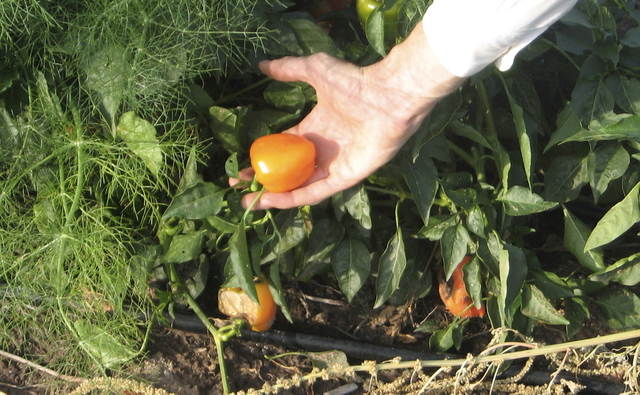Planting The Seeds: A Conversation With Jesse Daves Of Amyo Farms
A Conversation With Jesse Daves Of Amyo Farms


A sweet orange bell pepper, one of Daves’ specialties
Ty Bannerman








